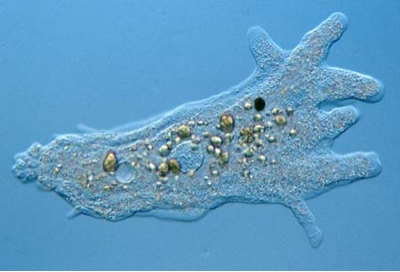Sign up for FlowVella
Sign up with FacebookAlready have an account? Sign in now
By registering you are agreeing to our
Terms of Service
Loading Flow

What are Protista?
What is a Protista?
The word Protista derives from the Greek protiston, meaning the "first of all ones." Kingdom Protista is a very large, diverse group of organisms, including the plant-like protists, fungi-like protists, and the animal-like protists. They are all eukaryotic, and most are unicellular. Protists can be heterotrophic or autotrophic, and these organisms usually live in water are moist places. All are aerobic and have mitochondria to do cellular respiration, and some have chloroplasts to carry out photosynthesis. Also some Protists act as pathogens to humans which means they cause diseases. Some diseases that are caused by Protists are Malaria and Giardia.
Protozoa are single celled organisms. They come in many different shapes and sizes ranging from an Amoeba which can change its shape to Paramecium with its fixed shape and complex structure. They live in a wide variety of moist habitats including fresh water, marine environments and the soil. Some are parasitic, which means they live in other plants and animals including humans, where they cause disease. Plasmodium, for example, causes malaria. They also can move by cilia, flagella, of pseudopods. Some examples of Protozoans are amoeba, paramecium, and giardia.
Introduction
What are Protozoans?
